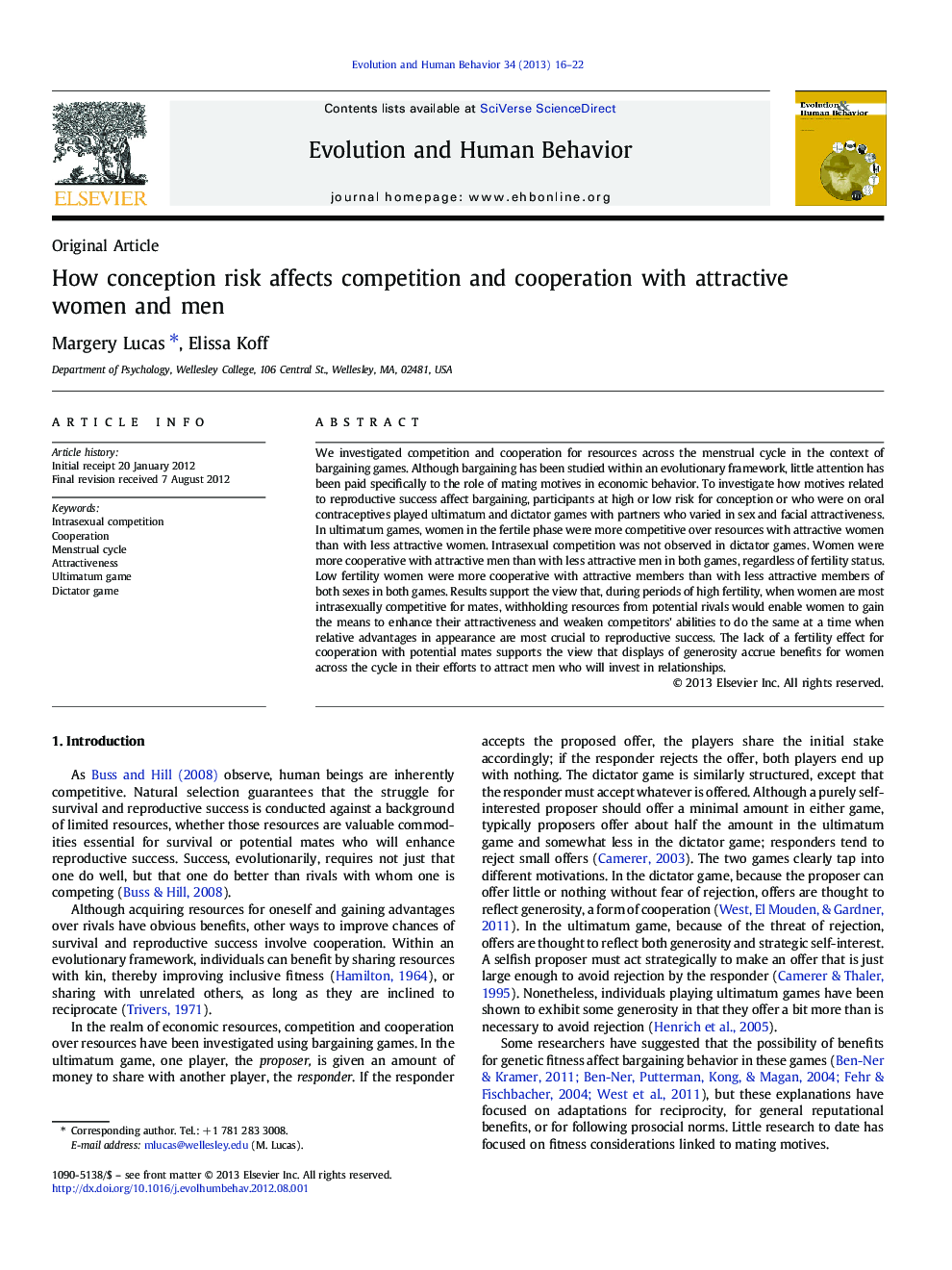| Article ID | Journal | Published Year | Pages | File Type |
|---|---|---|---|---|
| 943350 | Evolution and Human Behavior | 2013 | 7 Pages |
We investigated competition and cooperation for resources across the menstrual cycle in the context of bargaining games. Although bargaining has been studied within an evolutionary framework, little attention has been paid specifically to the role of mating motives in economic behavior. To investigate how motives related to reproductive success affect bargaining, participants at high or low risk for conception or who were on oral contraceptives played ultimatum and dictator games with partners who varied in sex and facial attractiveness. In ultimatum games, women in the fertile phase were more competitive over resources with attractive women than with less attractive women. Intrasexual competition was not observed in dictator games. Women were more cooperative with attractive men than with less attractive men in both games, regardless of fertility status. Low fertility women were more cooperative with attractive members than with less attractive members of both sexes in both games. Results support the view that, during periods of high fertility, when women are most intrasexually competitive for mates, withholding resources from potential rivals would enable women to gain the means to enhance their attractiveness and weaken competitors' abilities to do the same at a time when relative advantages in appearance are most crucial to reproductive success. The lack of a fertility effect for cooperation with potential mates supports the view that displays of generosity accrue benefits for women across the cycle in their efforts to attract men who will invest in relationships.
